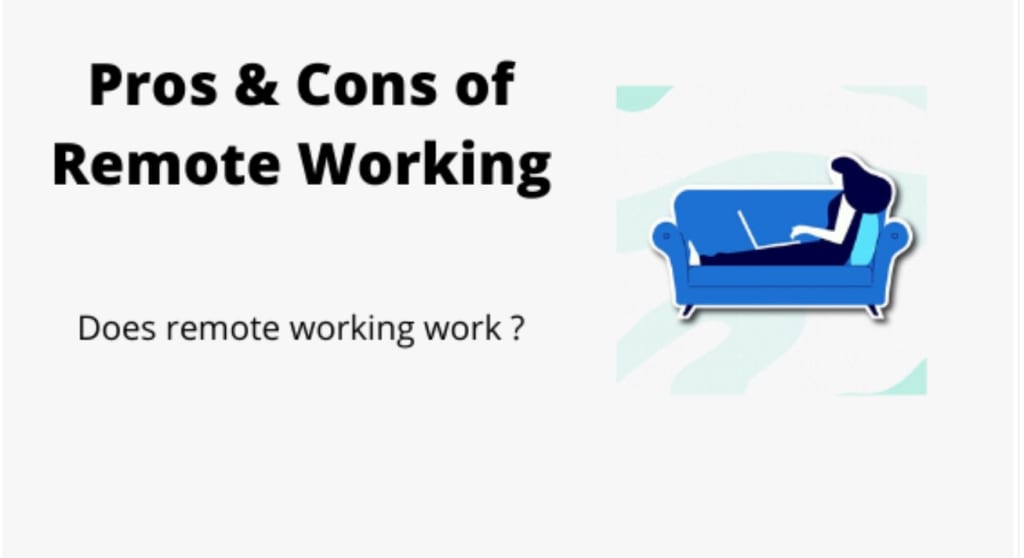The Pros and Cons of Remote Working
Is it the Right Choice for You?

Remote working has become increasingly popular, offering individuals the flexibility to work from anywhere and the freedom to create their own schedules. However, like any work arrangement, remote working has its advantages and disadvantages. In this article, we explore the pros and cons of remote working to help you determine whether it's the right choice for you.
Pros of Remote Working
Flexibility and Work-Life Balance
One of the most significant advantages of remote working is the flexibility it provides. Remote workers have the freedom to set their own schedules, allowing them to better balance their personal and professional lives. This flexibility enables individuals to attend to personal commitments, pursue hobbies, and create a customized work routine that suits their preferences and energy levels.
Increased Productivity
Remote working can often lead to increased productivity. Without the distractions of a traditional office environment, remote workers can focus better and complete tasks more efficiently. Additionally, they have the freedom to design their workspaces according to their preferences, optimizing their environment for maximum productivity.
Cost Savings
Working remotely eliminates the need for a daily commute, resulting in significant cost savings. Remote workers save on transportation expenses, including fuel, parking, or public transportation fares. Moreover, they can potentially reduce spending on professional attire, meals, and other expenses associated with office-based work. These cost savings can contribute to increased financial well-being.
Access to a Global Talent Pool
For businesses, remote working opens up access to a global talent pool. Employers can hire talented individuals from different geographic locations, increasing diversity and bringing fresh perspectives to the organization. This access to a diverse talent pool enables companies to build dynamic and innovative teams.
Cons of Remote Working
Lack of Social Interaction
One of the main drawbacks of remote working is the potential for social isolation. Remote workers may miss out on the face-to-face interactions and social connections that occur naturally in a traditional office setting. It's important for remote workers to actively seek opportunities for virtual collaboration, networking, and socializing to combat this sense of isolation.
Difficulty in Setting Boundaries
While remote working offers flexibility, it can also blur the lines between work and personal life. Without clear boundaries, individuals may find it challenging to switch off from work and maintain a healthy work-life balance. It's crucial for remote workers to establish clear boundaries, set dedicated work hours, and create a separate workspace to ensure a proper division between work and personal life.
Potential for Distractions
Working from home or other remote locations can present numerous distractions, such as household chores, family responsibilities, or the temptation to engage in non-work-related activities. Remote workers must develop strong self-discipline and time management skills to minimize distractions and stay focused on their work tasks.
Dependency on Technology
Remote working heavily relies on technology for communication, collaboration, and task management. Technical issues, such as internet outages or software glitches, can disrupt workflow and productivity. Remote workers need to be tech-savvy or have access to reliable technical support to overcome such challenges and ensure smooth operations.
In conclusion,
Remote working offers a range of advantages, including flexibility, increased productivity, cost savings, and access to a global talent pool. However, it also has its drawbacks, such as social isolation, difficulty in setting boundaries, potential distractions, and reliance on technology. To determine if remote working is the right choice for you, carefully consider these pros and cons, assess your work style, preferences, and ability to adapt to a virtual work environment. By making an informed decision, you can leverage the benefits of remote working while mitigating the challenges it may present.
About the Creator
Gilbert Mutongoi Ashiku
Like Informative articles on trends and tech? you are at the right place, welcome on board and enjoy my fascinating articles.






Comments
There are no comments for this story
Be the first to respond and start the conversation.